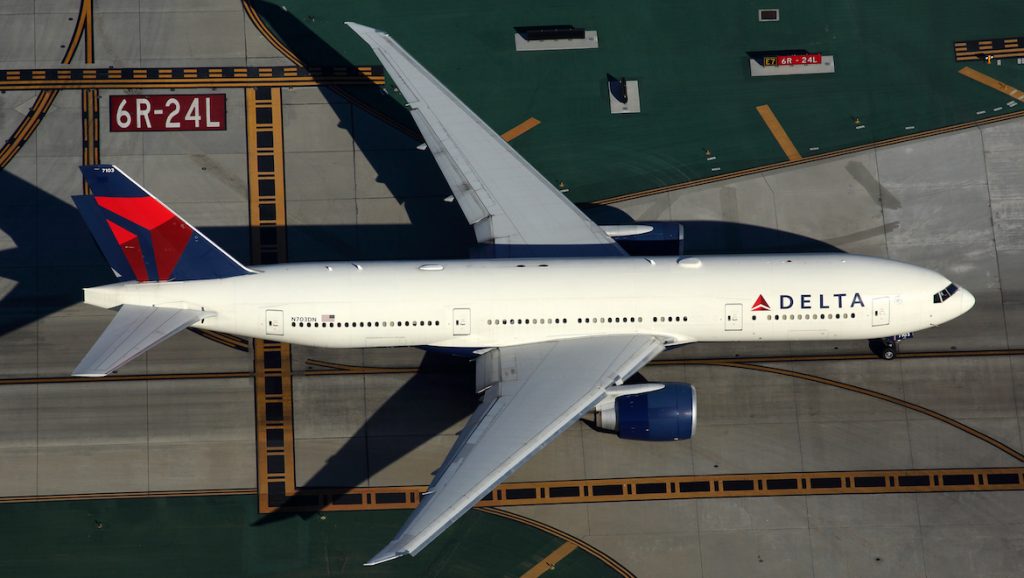
Atlanta-based Delta Air Lines was forced to cancel around 100 flights over the busy Easter weekend, due to a shortage of active pilots and other staff.
In a statement, the airline apologised to affected passengers, and noted that an “overwhelming majority” of passengers were re-booked onto another flight on the same day.
In order to achieve this outcome, the airline also back-flipped on its intentions, announced just last week, to keep middle seats free until 1 May, as customers were instead moved into all available seats on other flights.
The airline said that the cancellations were partially due to “large numbers of employee vaccinations” as well as “pilots returning to active status”.
As per US Federal Aviation Administration guidelines, pilots are required to wait at least 48 hours after each dose of the vaccine before they are allowed to return to active duty as a pilot.
The airline’s self-reported “staffing issues” are the likely results of a slew of early retirements and voluntary redundancies that were taken by pilots throughout the year.
For the pilots that remain with the company, many will need to be re-trained onto other aircraft types, or otherwise undergo pre-flight checks in order to return to active duty after months of being stood down.
It is the second time in six months that Delta has been forced to cancel flights due to an insufficient amount of pilots.
In November, over the US Thanksgiving period, Delta cancelled over 300 flights, or around 20 per cent of its flight schedule, due to the unexpected demand for travel over the holidays.
At that time, Delta stated the shortage of pilots was in light of a surge of COVID-19 infections throughout the US, with many of its pilots either unwell with the virus, or isolating as a result of coming in contact with someone with the virus.
In November, some 1,800 Delta pilots had already taken voluntary redundancy or retirement packages, which, according to the Air Line Pilots Association, “left a smaller pool of pilots qualified and ready to fly in the fleets that are seeing an increased demand over the holidays”.
Industry analysts have previously raised safety concerns over stood-down pilots returning to work after months on the ground, and the additional time airlines will need to invest for said pilots to undergo proficiency checks, or be re-trained on new aircraft types.
In November 2020, Ryanair boss Michael O’Leary said that “the only restriction” on airlines’ recovery trajectory will be their ability to re-hire and train pilots and cabin crew that may not still be current, which is why Ryanair has worked to keep crew and aircraft current and ready to go.
“We’re keeping the pilots current, we’re keeping the cabin crew current, we’re keeping the aircraft current, so really we can pounce on growth,” O’Leary noted.
Industry experts have also suggested that a mass exodus of older pilots approaching retirement age, as well as some early in their careers who have taken the opportunity to re-train into other fields, will leave the industry with a pilot shortage shortly after the pandemic.




